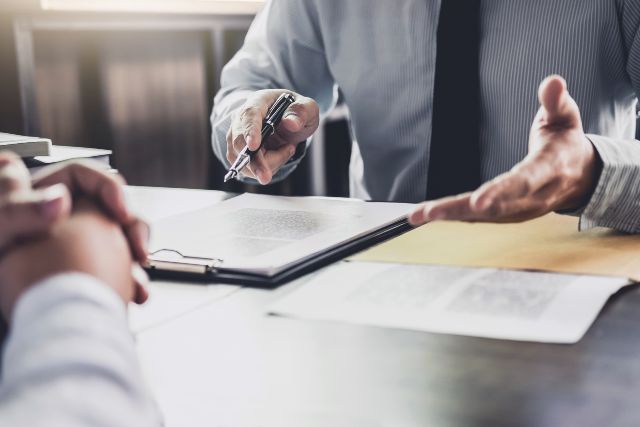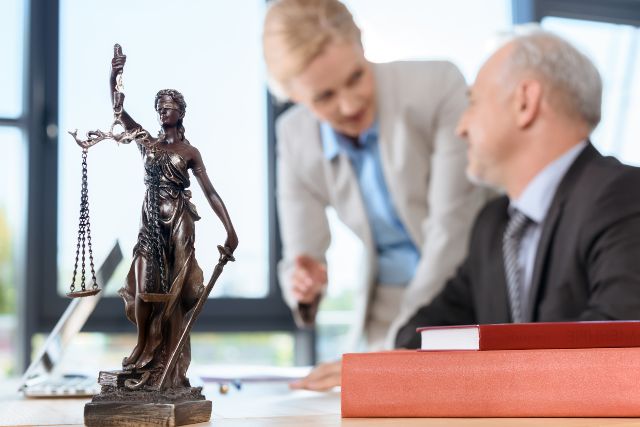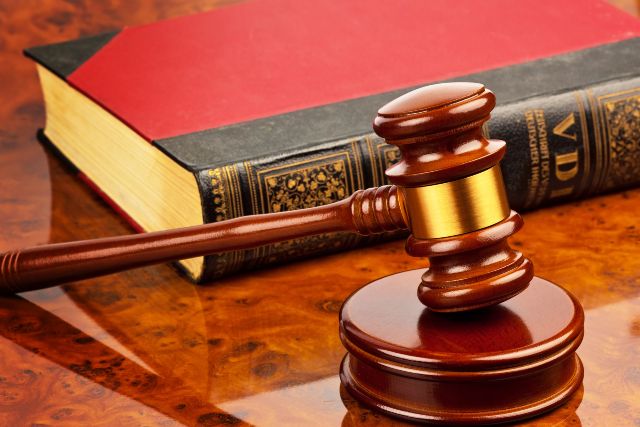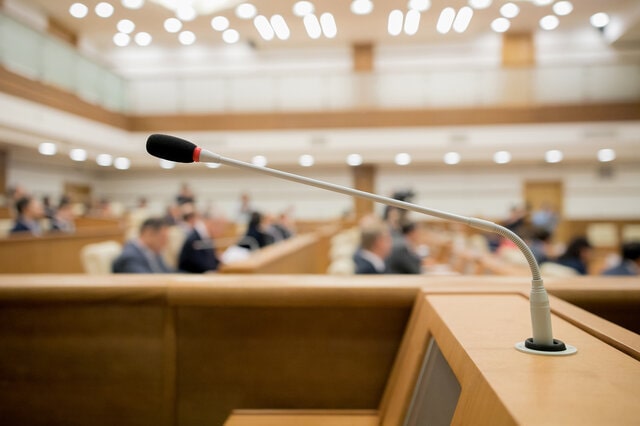Trusted criminal defense lawyer
Learn about probation revocation, the processes involved, and how Conoscienti and Ledbetter can assist you through legal hurdles and defenses.
 Author: J. Blake Ledbetter, Partner, Conoscienti & Ledbetter
Author: J. Blake Ledbetter, Partner, Conoscienti & Ledbetter
Mr. Ledbetter specializes in civil litigation in metropolitan Atlanta, Georgia, and possesses vast experience in wrongful death lawsuits. Mr. Ledbetter was recognized as a SuperLawyers Rising Star in 2018 and 2019 in the area of Civil Litigation. Published on June 10, 2024.
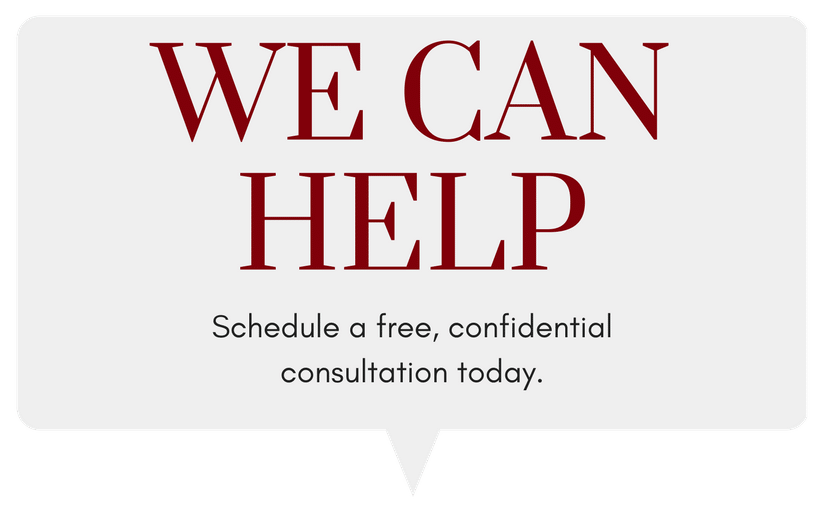
Speak with experienced criminal defense lawyer today, for free.
Probation is a way for people convicted of a crime to serve their sentence outside of jail, under supervised conditions, per GA Code § 42-8-102 (2022). If someone fails to meet these conditions, they risk revoking their probation. They could face severe penalties like fines, stricter probation rules, or even prison time.
Understanding the risks associated with probation is crucial because it affects one’s freedom and future. Solid legal support can help manage these risks and protect your rights during challenging times.
We are Conoscienti & Ledbetter, LLC, based in Atlanta, Georgia. We help people who are facing issues with probation. By providing solid legal support, we aim to minimize the impact of probation issues and help our clients maintain their freedom and navigate the complexities of the criminal justice system.
What Is Probation Revocation?
Probation revocation in Georgia occurs when a person on probation does not follow the conditions set by the court. Probation allows individuals convicted of crimes to avoid jail if they meet certain conditions. However, breaking these conditions can lead to severe consequences, such as revoking their probation and potentially being sent to jail. According to 18 U.S.C. § 3565 (2021), the court can revoke probation if it deems the individual violated any of the conditions or laws.
Probation violations can be categorized as either technical or substantive. Technical violations might include failing to report to a probation officer or not completing required programs, while substantive violations involve committing new crimes. In Georgia, the law is specific about these violations and their consequences.
Georgia’s Laws on Probation Violations
According to O.C.G.A. § 42-8-34.1, the court can revoke probation if the probationer fails to adhere to the conditions. The process involves a probation revocation hearing where the state must prove the violation by a preponderance of the evidence, as per Georgia Code § 42-8-38. During these hearings, the probationer has the right to legal representation and can challenge the alleged violations.
If a new felony is committed, the court can order the probationer to serve the remaining balance of the original sentence or up to the maximum time authorized for the new felony under O.C.G.A. § 42-8-34.1. However, the courts are encouraged to consider alternatives to revocation, such as community service or more intensive probation monitoring, especially for technical violations.
In managing probation issues and navigating the complexities of revocation, it is crucial to have knowledgeable legal support. This is where a law firm like Conoscienti & Ledbetter, LLC can assist. Our firm understands the intricacies of Georgia’s probation laws and can help protect your rights throughout the process.

Speak with trusted criminal defense lawyer today, for free.
Understanding the Probation Revocation Process
When someone on probation doesn’t follow the rules set by the court, the situation becomes serious quickly. This leads to the probation revocation process, which is a critical stage in the legal system. Here’s a simple breakdown of what happens during this process.
Under O.C.G.A. § 42-8-34.1(b), if a probationer is found to have breached the terms of their probation, the court must adhere to a prescribed protocol :
- A probation officer files a report about the violation.
- There’s a preliminary hearing where a judge looks at the evidence to see if there’s enough reason to proceed. If there is, the case moves to a revocation hearing. At this hearing, the judge reviews all the evidence in detail.
- The judge decides whether to continue probation, change its conditions, or revoke it entirely.
Here’s a quick overview of the steps involved:
- Report of Violation: The probation officer reports the violation.
- Preliminary Hearing: The judge decides if there is enough evidence to proceed.
- Revocation Hearing: The judge examines the violation in detail.
- Judge’s Ruling: The judge decides what happens next.
In Georgia, this process is guided by Georgia Code § 42-8-34.1(b). Probation officers play a crucial role by supervising probationers and ensuring they follow the rules. They also have to report any violations to the court.
Evidence is significant in this process. A probation officer’s report or testimony must be well-documented. This evidence helps the judge make a fair decision during the revocation hearing.
Consequences of Probation Revocation in Georgia
When probation is revoked in Georgia, the consequences can be severe and varied. The type of violation—whether it’s a technical violation or a substantive violation—can influence the specific outcomes. Here is a list of possible consequences based on the type of violation.
For Technical Violations:
- Extended Probation: Additional time is added to the probation period.
- Additional Fines: Increased financial penalties.
- Community Service: More hours of community service assigned.
- Intensive Probation Supervision: More stringent supervision conditions, such as more frequent check-ins with a probation officer.
- Rehabilitation Programs: Mandatory enrollment in rehabilitation or counselling programs.
- Curfew Restrictions: Imposition of stricter curfew requirements.
- Electronic Monitoring: Requirement to wear an electronic monitoring device.
For Substantive Violations:
- Incarceration: Serving the original sentence in jail or prison, often the most severe consequence.
- Revocation of Probation: Complete termination of probation, leading to the whole sentence being served in custody.
- Additional Charges: Facing new criminal charges for the new offense could lead to separate legal proceedings and additional sentences.
- Increased Supervision: More intense and frequent supervision if probation is continued.
- Loss of Privileges: Additional restrictions on freedoms, such as travel bans or limitations on associating with specific individuals.
Mitigating these consequences involves presenting a solid case for alternative sentencing options or the continuation of probation. Emphasizing support that fosters compliance rather than imposing further penalties can help individuals navigate this challenging process.

Don’t delay. Schedule a risk-free consultation today.
Legal Rights During a Probation Revocation Hearing
When someone goes to court for a probation revocation hearing, they enter a place full of legal rules and rights to ensure fairness. Many people might need to learn all the protections they have. The right to due process applies here, too, offering a fair and structured hearing process. In probation revocation cases, the prosecutor must prove a violation happened. They must convince the judge with a “preponderance of the evidence,” which is easier to prove than “beyond a reasonable doubt” in criminal trials. This standard is necessary because it shapes the whole hearing.
Legal Rights of the Accused
Like any legal proceeding, a probation revocation hearing grants you specific rights, which include:
- Notification: The accused must be told about the allegations against them.
- Counsel: They have the right to be represented by a criminal defense lawyer.
- Evidence: They can see all the evidence and documents the prosecution has.
- Adversarial Witnesses: They can question and cross-examine the prosecution’s witnesses.
- Witnesses: They can bring their witnesses to support their defense.
- Hearing: They have the right to a formal hearing where both sides present their cases.
- Appeal: If the decision is unfavorable, they can appeal it.
When probation is at risk, things like completed or pending community service may influence the judge’s decision. However, the accused’s rights are crucial for challenging alleged probation violations. At Conoscienti and Ledbetter, we understand the complexities of these hearings and are dedicated to helping our clients navigate them, ensuring every right is upheld during a probation violation hearing.
How Can Conoscienti and Ledbetter Help?
Having access to experienced legal professionals is crucial when facing probation revocation. At Conoscienti and Ledbetter, we provide the dedicated skillset needed for probation revocation proceedings. Our defense strategies are tailored to each case to aim for the best possible representation.
Case Evaluation
We carefully assess the details of the alleged probation violation to create a strong defense.
Hearing Representation
We stand by our clients at the revocation hearing, presenting a solid defense and working to reduce potential consequences.
Negotiation
Using our knowledge, we negotiate alternatives to revocation, like reinstatement with modified conditions or additional interventions that benefit the offender.
Experience Matters
Experience in the legal field is vital, especially when someone’s liberty is at stake. Our team’s background helps us effectively anticipate and counter the prosecution’s tactics.
By enlisting our help, probationers get an advocate who can handle the complexities of their case and strive for a favorable outcome. Our commitment is not just to defend but to uphold justice. Conoscienti and Ledbetter are reliable choices for professional representation in probation issues.
Contact Conoscienti & Ledbetter, LLC
When facing probation revocation, it’s crucial to understand the seriousness and potential impact on your future. Fast action and informed decisions are essential. At Conoscienti & Ledbetter, we understand the complexities and prioritize clear communication.
Each probation revocation case is unique, so we offer personalized legal solutions. During our initial consultation, we start by thoroughly analyzing your situation. Prompt support is crucial because the consequences of revocation can be severe, potentially leading to fines or jail time.
Consultations provide insights into the best course of action, clarify the impact of a probation violation, and outline possible defense strategies. Contact us today if you need to discuss a probation issue or seek guidance. Our team understands the nuances of probation law and is ready to navigate these challenges with you.
Decatur Office
(404) 373-5800
315 W Ponce de Leon Ave. Suite 400 Decatur, GA 30030


